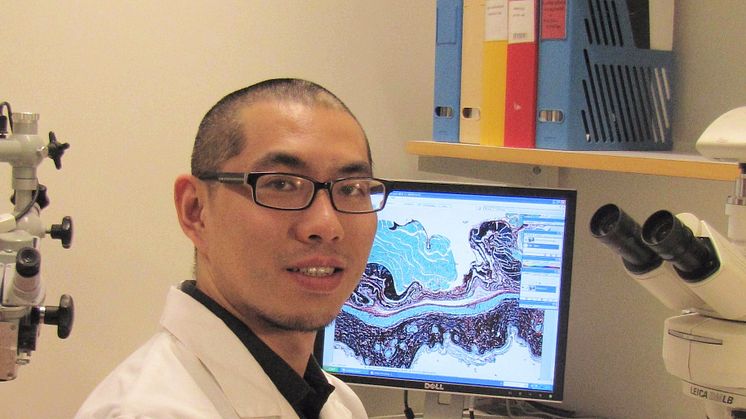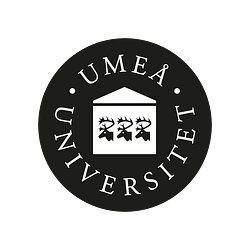
Press release -
Discovery of a novel medicine for the treatment of chronic wounds
Every 20 seconds, a limb is lost as a consequence of diabetic foot ulcer that does not heal. To date, medical solutions that can change this situation are very limited. In his doctoral thesis Yue Shen from the Industrial Doctoral School and the Department of Medical Biochemistry and Biophysics at Umeå University presented a novel medicine for chronic wound treatment that may completely change the lives of millions of patients.
Diabetic wounds are the most severe type of chronic wounds that largely impair the quality of life in patients and inflict an enormous burden on the healthcare system. World-wide, there are more than 350 million diabetic patients and about 20% of them develop diabetic foot ulcers that often do not heal, which eventually lead to amputation. Chronic eardrum perforations are another type of chronic wounds. Today the only existing treatment of chronic eardrum perforations is through surgery.In his thesis, Yue Shen demonstrates that plasminogen, a well-known plasma protein, acts as a key regulatory molecule of inflammation that can be used to treat different types of chronic wounds including diabetic wounds and chronic eardrum perforations. Yue Shen demonstrates that the level of plasminogen dramatically increases in and around wounds, which leads to an enhanced inflammation that is required for healing. In diabetic wounds that do not heal, the level of plasminogen does not increase and the inflammatory response is suppressed. When plasminogen is injected around diabetic wounds, the healing process starts and the wounds eventually heal fully. In chronic eardrum perforations, local injection and topical application of plasminogen also stimulates the healing and leads to complete healing.
Based on these studies, a controlled clinical study using human plasminogen to treat chronic wounds in humans is now planned. The ultimate goal is to develop plasminogen to a medicine for the treatment of various chronic wounds.
The findings in Yue Shen's thesis not only reshape our molecular understanding of the role of plasminogen during wound healing process, but also bring the hope to millions of desperate patients who suffered from chronic wounds.
Yue Shen was born and raised in Shanghai, where he received his M.D. in 2004 and worked as a resident physician in Centers of Disease Control and Prevention before coming to Umeå in 2007.
On Friday 24 May, Yue Shen, Department of Medical Biochemistry and Biophysics, will defend his doctoral thesis with the title: Plasminogen: a novel inflammatory regulator that promotes wound healing. Faculty Opponent: Gunilla Høyer-Hansen, Ph.D, Copenhagen University Hospital, Denmark.
The public defence takes place at 10.00 in the KBC Building, KB3A9.
For further information, please contact:
Yue Shen, M.D. (in English)
Department of Medical Biochemistry and Biophysics, Umeå University
Mobile: +46-722 318 699
Email: yue.shen@medchem.umu.se
Related links
Topics
Categories
Umeå University
Umeå University is one of Sweden's largest institutions of higher learning with over 36,000 students and 4,200 employees. We have a well-established international research profile and a broad range of study options. Our campus constitutes an inspiring environment that encourages interdisciplinary meetings - between students, researchers, teachers and external stakeholders. Through collaboration with other members of society, we contribute to the development and strengthen the quality of our research and education.

